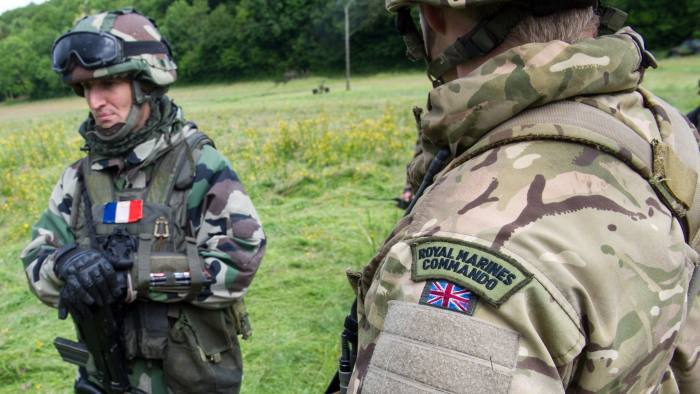Brexit is a process which have a major impact on the UK and Europe for sure.
And no matter what the Brexit negotiated outcome that will be sorted out between the EU and the UK, both continental Europe and the UK will have to find a way to work together going forward.
The UK has a long history of dealing with continental Europe as does continental Europe with the United Kingdom, and certainly not all peaceful.
Brexit is an episode of history which will be ingested as the UK and Europe go forward in the next phase of their interactions.
Clearly, the UK and as well as major continental powers will sort out a way ahead, but as they do so several trajectories of developments will be set in motion.
We are focused on defense, so for us, Brexit has a number of key impacts on the future of European defense and certainly NATO as well.
First, the UK is a major defense power within Europe.
What is its relationship to the continent after Brexit?
What does a post-Brexit defense policy look like for Britain?
Second, what impact will Brexit have on the internal cohesion of UK defense policy?
What role for Scotland and England?
And how will the Irish question intrude into the defense equation?
Third, will continental Europe meet the demands of enhanced defense responsibility for its own defense?
How will France and Britain work together?
Where will German defense policy focus its attention and its resources?
What impact will the UK have within European defense organizations or not?
Fourth, what impact will Brexit have upon the relationships between UK and continental defense and aerospace companies?
Airbus, Thales, MBDA, and Leonardo all have major working relationships and facilities in the UK.
What is their fate and how will these relationships work in practical terms as movement of personnel, taxes and import and export issues get sorted?
Will joint investments continue between Britain and the continent within these companies?
What is the future of Eurofiighter if the UK and continental European relationship is disrupted?
Will France and UK co-investments in missiles via MBDA continue uninterrupted?
There are a number of key questions to consider determining the fate of European and UK defense in dealing with the looming Brexit impacts.
A recent article in The Times highlighted one of those issues recently and constitutes our first Brexit note on defense.
In a piece published on May 4, 2018, Francis Elliot, the political editor of The Times, focused on the challenge of working the new European satellite system, Galileo, post-Brexit.
Galileo is a satellite-based navigation system created by the EU which aims to free European nations from having to rely on Russian, Chinese or US GPS systems. It is intended to be accurate within a metre and is considered crucial to UK military and intelligence needs.
The European Commission insists that the UK must be blocked from Galileo’s back-up system, needed by the military, as only EU members can have access to sensitive encrypted signal. That has infuriated Mrs May and senior ministers, even those such as Philip Hammond who support keeping the UK closely aligned with the EU. A Downing Street source said the so-called “war cabinet” was united in its determination to force Brussels to back down.
Britain has contributed about 12 per cent of the cost of Galileo, with overseas territories such as the Falklands providing some of the ground stations.
The chancellor has now authorised the effective sabotage of Galileo’s development by seeking to disrupt the transfer of encryption technology from a firm in the UK to France…..
The author then quoted Sir Richard Dearlove, former head of MI-6 and Professor Gwythian Prins, a former adviser to the chief of the defence staff, to the effect that the UK is not going to be able to work within the Galileo system given the way the EU works.
The EU was not ‘playing hardball’ on Galileo . . . It is merely operating within the strictures of its own vast and inflexible acquis of directives and treaties, just as it will do on all aspects of our ‘negotiations….”.
“They will have grasped that the UK’s departure means that a considerable chunk of finance, most of the expertise and several ground stations will be lost from the project . . .
So they need to trap the UK fly in a spider’s web so that after Brexit we are powerless, but still contributing money and the essential skills the EU needs.
Since so much of Galileo is British, the UK might do as the prime minister is reported to be considering seriously, namely develop its own global navigation network.
We strongly encourage her to take this prudent step in the interests of our national security.”
In the interview below broadcast last December, the former head of MI-6 focused on Brexit among other issues in explaining how he sees the way ahead.
The featured photo shows French and British soldiers working together during a recent military exercise © AFP


